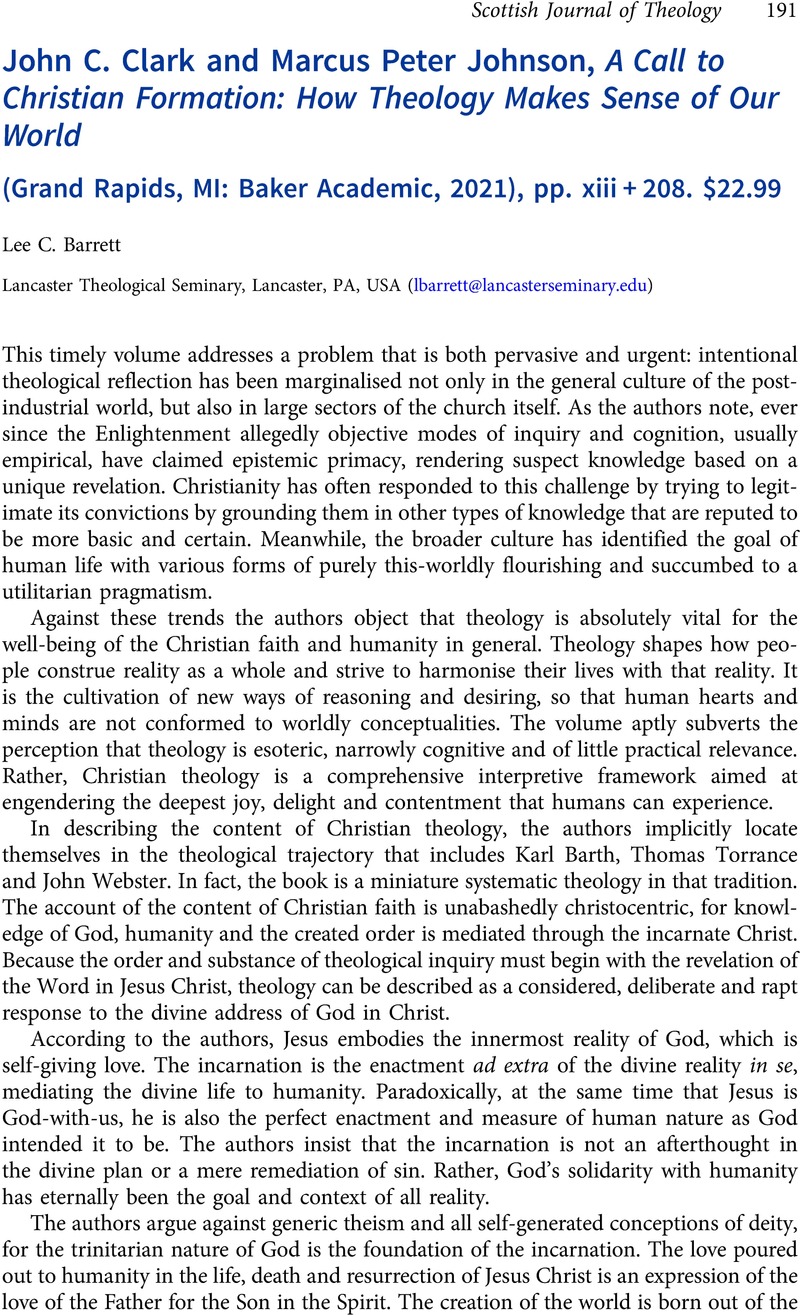No CrossRef data available.
Article contents
John C. Clark and Marcus Peter Johnson, A Call to Christian Formation: How Theology Makes Sense of Our World (Grand Rapids, MI: Baker Academic, 2021), pp. xiii + 208. $22.99
Review products
John C. Clark and Marcus Peter Johnson, A Call to Christian Formation: How Theology Makes Sense of Our World (Grand Rapids, MI: Baker Academic, 2021), pp. xiii + 208. $22.99
Published online by Cambridge University Press: 20 April 2023
Abstract
An abstract is not available for this content so a preview has been provided. Please use the Get access link above for information on how to access this content.

- Type
- Book Review
- Information
- Copyright
- Copyright © The Author(s), 2023. Published by Cambridge University Press



